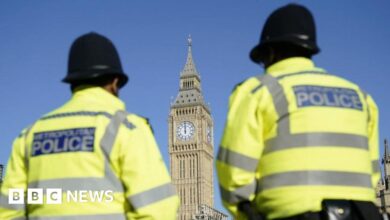Waspi women refused payouts – but what other compensation bills are looming?
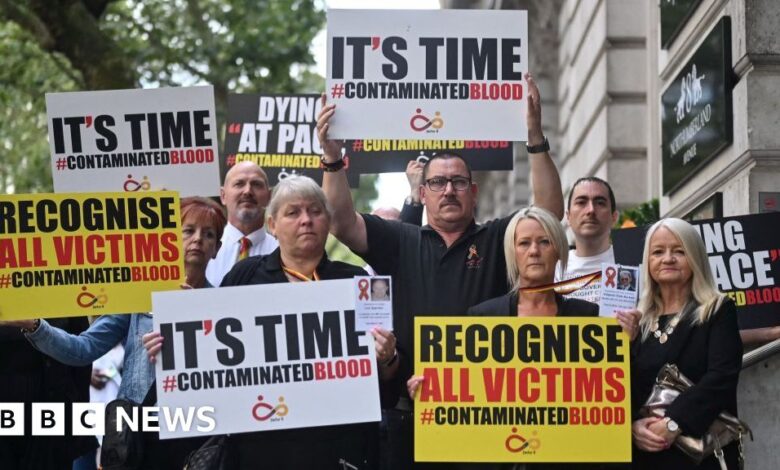
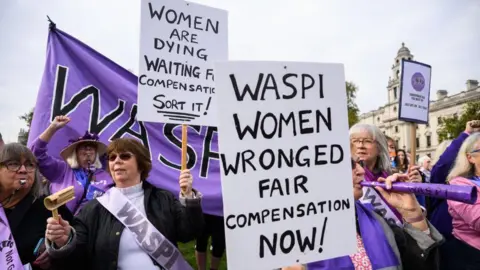 Getty Images
Getty ImagesThe government is facing a backlash after it rejected compensation for women hit by changes to the state pension age.
In opposition, senior Labour figures had been vocal supporters of the Women Against State Pension Inequality (Waspi) campaign, which argues 3.6 million women born in the 1950s were not properly informed of the rise in the state pension age to bring them into line with men.
Work and Pensions Secretary Liz Kendall and the prime minister himself are among those who have been pictured alongside campaigners holding signs backing their cause before Labour won power.
The party’s 2017 and 2019 general election manifestos both promised compensation for those affected – but the pledge did not make it into this year’s manifesto.
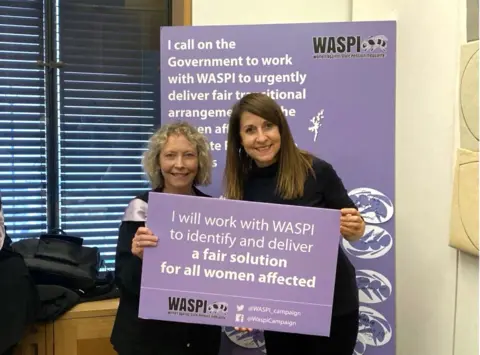 Waspi/PA Media
Waspi/PA MediaBack in March, the Parliamentary and Health Service Ombudsman recommended payouts of between £1,000 and £2,950 each.
Ministers have apologised for delays informing women about the changes, but the government says paying a flat rate to all those affected would cost up to £10.5bn and would not be fair on taxpayers.
The ombudsman says it is “extremely rare” that an organisation refuses to act on its recommendations – but it cannot force the government to do so.
It’s worth noting that while the Conservatives did not respond to the ombudsman’s report when they were in power, at the time the watchdog said the Department for Work and Pensions had indicated it would refuse to comply with its compensation proposals.
The row is an illustration of the challenge of moving from opposition to government – when the money has to be found to pay for any commitments.
Waspi women are not the only group calling for financial redress.
The government has already inherited huge bills for compensation schemes addressing historic scandals, with others potentially in the pipeline.
Postmasters
Between 1999 and 2015 more than 900 sub-postmasters were prosecuted for stealing because of incorrect information from the faulty Horizon computer system.
The scandal has been described as one of the biggest miscarriages of justice the UK has ever seen.
The previous Conservative government set up several different compensation schemes for victims. These have continued under the new Labour administration, which has also launched an additional scheme covering sub-postmasters whose convictions were overturned by new legislation.
Around £500m has been paid out to more than 3,300 claimants so far, with individual amounts ranging from £10,000 to over £1m.
October’s Budget set aside £1.8bn for Horizon compensation schemes for 2024/25 – but the government has not given an estimate for how much it expects to pay out in total.
Infected blood victims
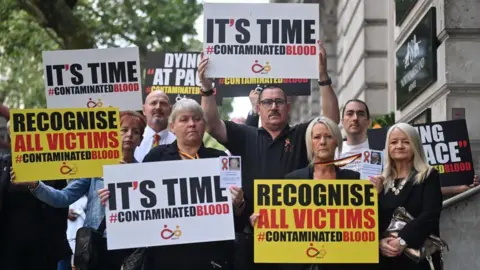 Getty Images
Getty ImagesMore than 30,000 people in the UK were infected with HIV and hepatitis C after being given contaminated blood products in the 1970s and 1980s.
Since then more than 3,000 people have died while thousands of others live with health conditions.
A public inquiry has accused doctors, the government and the NHS of repeatedly failing patients, who were not told of the risk of their treatment or even whether they were infected.
October’s Budget included £11.8bn of funding to compensate victims, in what is thought will be be the largest payment of its kind in NHS history.
Around 4,000 survivors and bereaved partners have already received a series of interim payments worth up to £310,000 each, which began in 2022.
LGBT veterans
Although homosexuality started to be decriminalised in the UK in 1967, it was illegal for gay people to serve in the British military until 2000.
An independent report in 2023 detailed decades of homophobia and bullying, with those perceived to be gay often subjected to abusive investigations and medical examinations before being discharged.
The previous Conservative government accepted the report’s recommendation of compensation for those impacted by the ban.
Earlier this month the new Labour administration announced LGBT veterans who were dismissed from the armed forces for being gay would be eligible for up to £70,000 each.
The total amount available for payouts has increased from the £50m initially proposed by the report, to £75m.
Up to 4,000 veterans are expected to be eligible, according to the National Audit Office.
Nuclear veterans
 Labrats international
Labrats internationalMore than 20,000 military personnel served as part of UK nuclear weapons tests during the 1950s and 60s in Australia, Fiji and other Pacific islands, with an estimated 1,500 still alive.
Thousands have suffered cancers and other conditions, while some of their children have been born with disabilities.
Campaigners say evidence suggests these illnesses were caused by exposure to radiation during tests – and that the UK military knew at the time the risk it was subjecting people to.
The Ministry of Defence has long insisted research has found no link between the tests and ill health or genetic defects in children, and that no records have been withheld.
But campaigners have renewed their calls for compensation following the emergence of new potential evidence.
Back in 2019, then-Labour leader Jeremy Corbyn pledged £50,000 for each surviving British nuclear-test veteran.
His successor, Sir Keir Starmer, met campaigners in 2021 but has made no promises on payouts.
The government says it is listening to the concerns of veterans – but whether this results in financial compensation remains to be seen.


